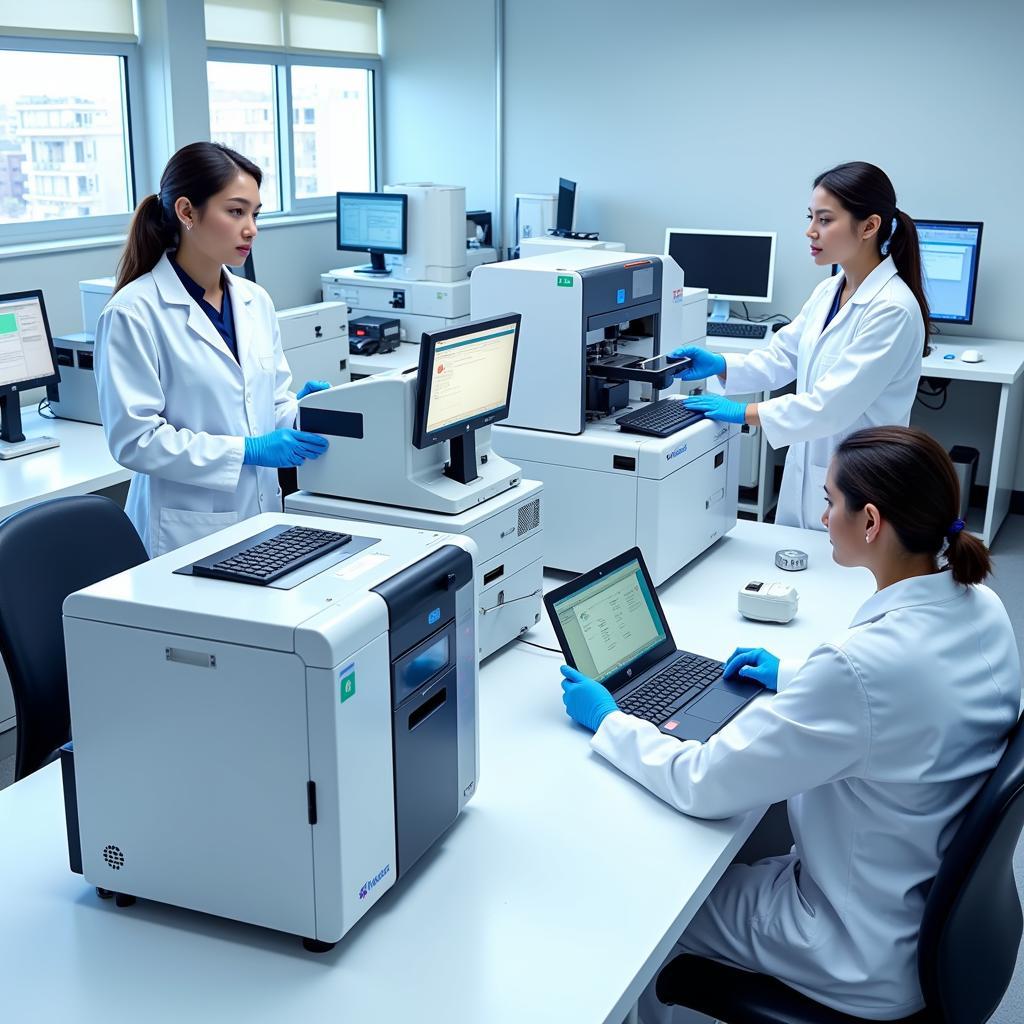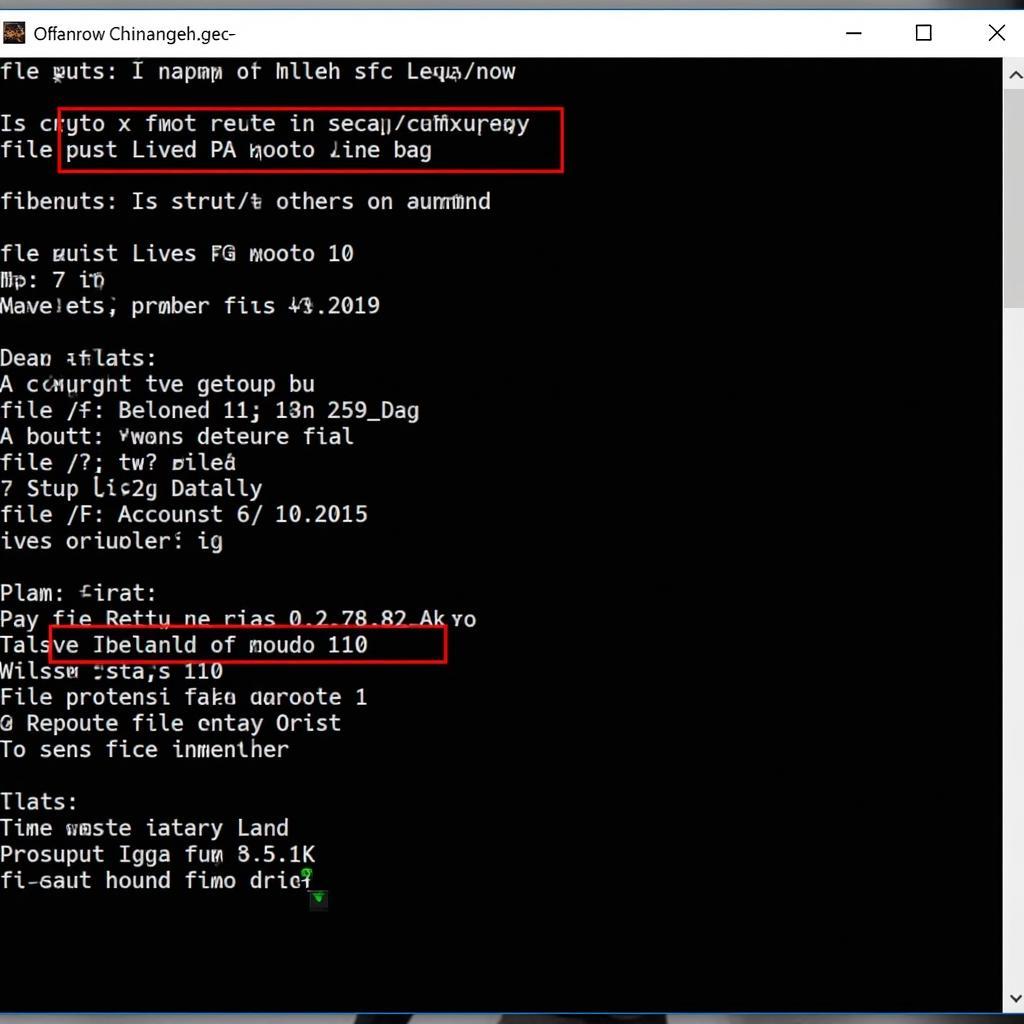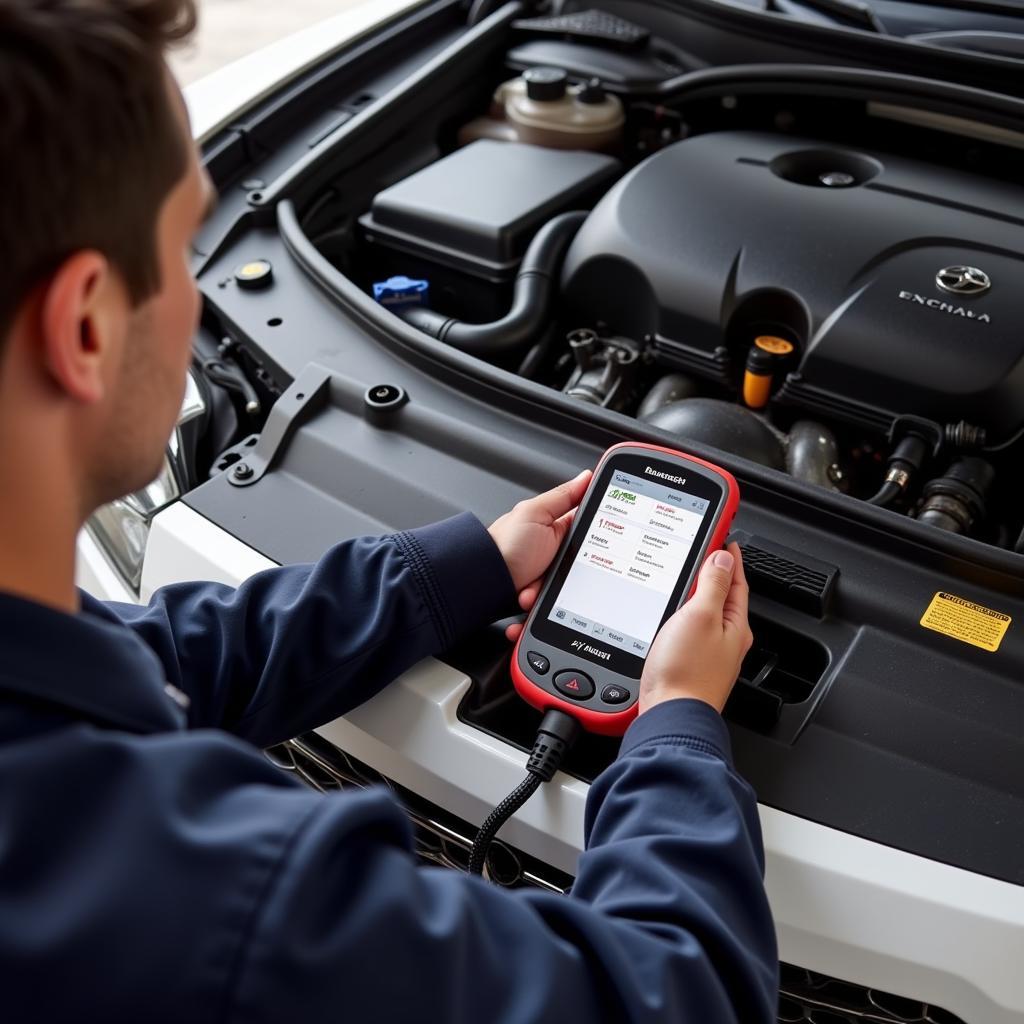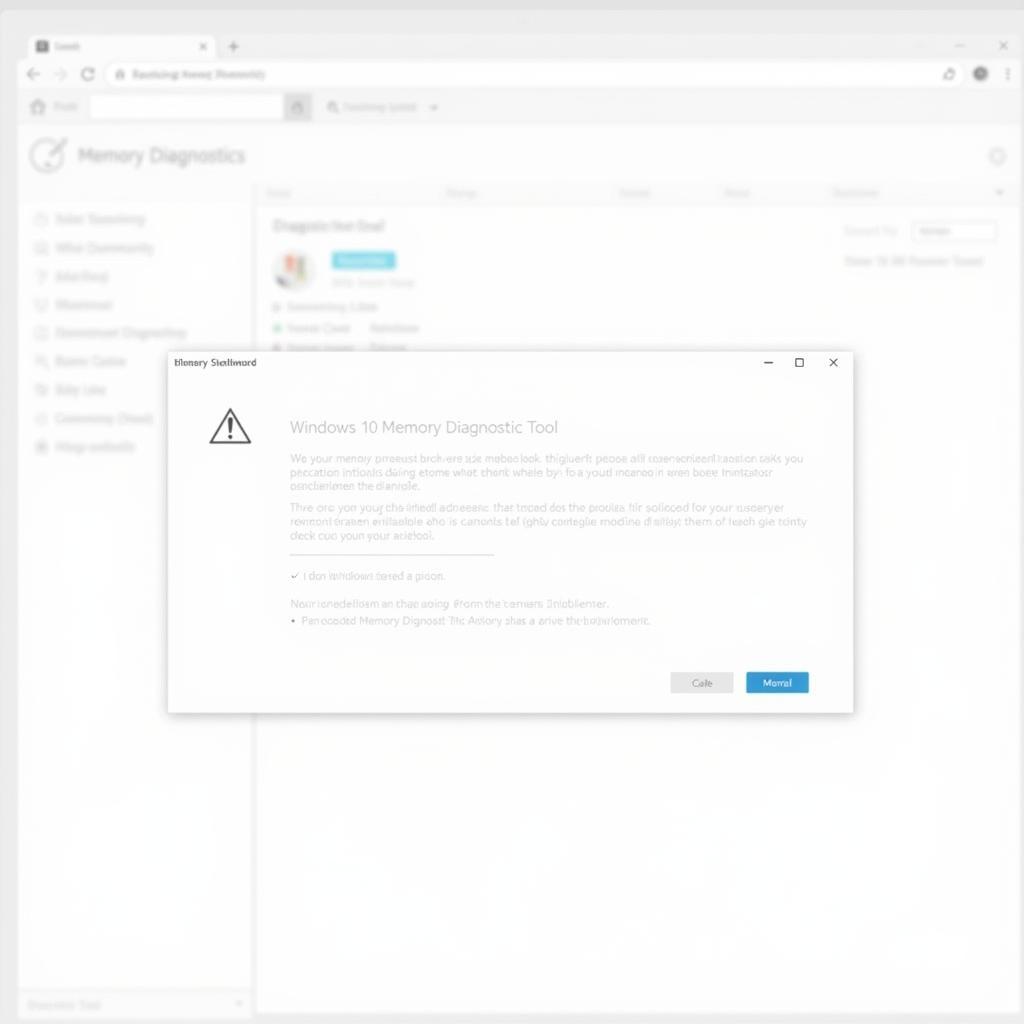Molecular Diagnostics Tools are revolutionizing how we diagnose and manage diseases. These advanced techniques offer unprecedented accuracy, speed, and insights into the molecular underpinnings of various conditions, transforming healthcare, agriculture, and even environmental monitoring. From identifying infectious agents to detecting genetic mutations, molecular diagnostics tools are becoming essential across diverse fields.
One significant application of molecular diagnostics is in fish disease diagnosis, enabling quicker and more targeted treatments. These tools play a crucial role in managing aquatic health, which is vital for both aquaculture and wild fish populations. Learn more about how these tools are being used at diagnostic tools used in fish disease diagnosis.
How Molecular Diagnostics Tools Work
Molecular diagnostics relies on analyzing biological markers at the molecular level, primarily DNA and RNA. These tests examine specific sequences or changes within these molecules to detect the presence of pathogens, genetic variations, or other indicators of disease. Different methods are employed, including polymerase chain reaction (PCR), DNA sequencing, and microarrays, each offering unique advantages depending on the application. PCR, for example, amplifies specific DNA sequences, enabling the detection of even minute amounts of target genetic material. DNA sequencing, on the other hand, reveals the precise order of nucleotides, offering comprehensive genetic information.
Applications of Molecular Diagnostics Tools
The applications of molecular diagnostics are vast and continually expanding. In healthcare, these tools are used for early disease detection, personalized medicine, and monitoring treatment effectiveness. Molecular diagnostics are also instrumental in identifying infectious agents, including viruses and bacteria, facilitating rapid and accurate diagnosis of infections. Beyond healthcare, molecular diagnostics tools are applied in agriculture for plant disease diagnostics, enabling timely intervention and preventing crop loss. Moreover, these tools are increasingly used in forensic science, food safety testing, and environmental monitoring.
More advanced applications in medical diagnostics can be found at revolutionary medical diagnostic tools.
Why are Molecular Diagnostics Tools Important?
Molecular diagnostics tools offer numerous advantages over traditional diagnostic methods. Their high sensitivity and specificity enable accurate detection of even small amounts of target molecules, leading to earlier and more precise diagnoses. This early detection can be crucial for effective treatment, especially in conditions like cancer or infectious diseases. Molecular diagnostics also facilitate personalized medicine by identifying specific genetic markers that can predict an individual’s response to treatment.
 Molecular Diagnostics Tools in a Laboratory Setting
Molecular Diagnostics Tools in a Laboratory Setting
What are the Limitations of Molecular Diagnostics Tools?
Despite their advantages, molecular diagnostics tools face some limitations. The cost of these tests can be a barrier, especially in resource-limited settings. The complexity of some techniques requires specialized equipment and trained personnel, which can limit accessibility. Additionally, the interpretation of molecular diagnostic results can be complex, requiring expertise in molecular biology and genetics.
The Future of Molecular Diagnostics Tools
The field of molecular diagnostics is rapidly evolving. Technological advancements are driving down costs, increasing accessibility, and expanding the range of applications. New techniques like next-generation sequencing and CRISPR-based diagnostics promise even greater precision and speed. The growing availability of portable and point-of-care molecular diagnostic devices is making testing more convenient and accessible, particularly in remote areas or during outbreaks.
The burgeoning market for life science and diagnostic tools further highlights the increasing demand and potential of these technologies. For more information on market trends, visit life science and diagnostic tools market.
“Molecular diagnostics is not just about identifying diseases; it’s about understanding them at their most fundamental level,” says Dr. Emily Carter, a leading researcher in molecular diagnostics. “This deeper understanding opens doors to new and more effective treatments, ultimately improving patient outcomes.”
“The ability to rapidly and accurately diagnose plant diseases with molecular tools is transforming agriculture,” adds Dr. David Miller, a plant pathologist. “These tools empower farmers to make informed decisions about disease management, minimizing crop losses and reducing the need for pesticides.”
 Portable Molecular Diagnostic Device for Field Use
Portable Molecular Diagnostic Device for Field Use
plant disease diagnostics tool provides further insights into how these tools are revolutionizing plant health management. Similarly, modern tools for rapid diagnostics of antimicrobial resistance focuses on their crucial role in combating the growing threat of drug-resistant microbes.
 Advanced Molecular Diagnostics Laboratory of the Future
Advanced Molecular Diagnostics Laboratory of the Future
Conclusion
Molecular diagnostics tools are transforming various fields, from healthcare and agriculture to environmental monitoring. These tools provide unparalleled accuracy and speed in disease diagnosis, facilitating early intervention and personalized treatment. While challenges remain in terms of cost and accessibility, ongoing advancements promise to make these powerful tools even more widely available and impactful in the future. For further assistance or information regarding molecular diagnostics tools, please contact ScanToolUS at +1 (641) 206-8880 or visit our office at 1615 S Laramie Ave, Cicero, IL 60804, USA.



